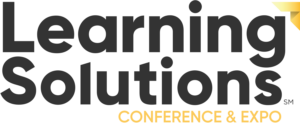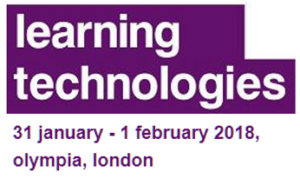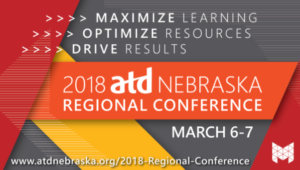 I’ve been in the workplace learning and performance field for over fifteen years. When I reflect on my career, one of the things I’m most thankful for was being let go from from my first Training Director position. I obviously didn’t realize it at the time – I was probably too busy panicking to notice – but that disruption to my status quo was one of the primary catalysts to the professional growth that led me to where I am today.
I’ve been in the workplace learning and performance field for over fifteen years. When I reflect on my career, one of the things I’m most thankful for was being let go from from my first Training Director position. I obviously didn’t realize it at the time – I was probably too busy panicking to notice – but that disruption to my status quo was one of the primary catalysts to the professional growth that led me to where I am today.
When I lost that first job, I was forced to take stock of my skill set. The job postings I would review and the interviews I would go on brought to light a critical mistake I had made in my career. While my skill set was very strong in many areas, it was weaker in other areas, areas that had grown in importance in recent years. My skill set was being defined by the needs of the organization.
Think about that statement for a moment: “My skill set was being defined by the needs of the organization”. That doesn’t sound bad, does it? In fact, it sounds like I’m doing the right thing by my employer. The problem is, allowing your skill set to be defined by the needs of the organization hurts you as an individual, and it hurts your organization.
Let’s start with how it hurts you as an individual. When I was with my first employer, I wasn’t driving my career, or my professional growth. It wasn’t until I left that employer that I realized my skill set was falling behind in some areas because I wasn’t updating them. The growth of my skill set was a by product of responding to the needs of the organization. Sure, there was some growth based off my need to find solutions to new problems, but that’s reactive growth, and it’s limited. You can’t ensure that your skill set is current without knowing what’s going on in the profession. To ensure that your skill set remains current, you need to be curious about what’s going on around you, beyond the walls of your organization. Allowing the needs of an organization to dictate your professional growth leads to stagnation, and to “Doing what we do because it’s what we’ve always done”.
Allowing the needs of the organization to dictate your skill set hurts your employer as well. Many organizations identify innovation as one of the things they need most. Innovation is about new ideas, methods, products or technologies. These are sadly not the types of things that happen within the silos of most organizations. New ideas come from branching out and exploring paths that you haven’t walked before. Innovation doesn’t come from reacting to a need; it comes from continuously expanding your knowledge and skill set so that when new problems and needs arise, you have new resources from which to build solutions. When an employee’s professional growth stagnates, the organizations opportunities for innovative solutions are minimized.
This is true across our organizations, including within the world of the learning professional in which most people reading this post work. It’s critical for learning professionals to “Sharpen the Saw” as Stephen Covey would say. For our personal benefit and for the benefit of the organizations that we work with, we need to make sure we keep our finger on the pulse of the industry, and keep our skill sets up-to-date with the latest advancements in learning technologies and methodologies.
This is one of the primary reasons I look forward to attending the DevLearn Conference and Expo each year. I’m lucky enough to attend a number of different conferences, and DevLearn is the one that I always look for to find out what’s next, and to see examples of cutting edge technologies put into practice. With almost 200 different learning opportunities, DevLearn is the one event that I count on every year to find out what new technologies and methods are being used today, as well as getting an advance preview on many of the technologies and techniques that will need to be added to my skill set in the years to come.
Check out the video below to hear other industry professionals share their thoughts on why it’s critical for learning professionals to stay abreast on the changes going on in our field.
In today’s fast-moving world, if you’re not moving forward, you’re falling behind. This is especially true in the learning profession right now, as there are a number of advancements being adopted in the industry that alter the way we have done our job in the past. I encourage you to follow the changing tides of our industry, and take control of your growth to ensure your skills remain current.
For me, the DevLearn Conference and Expo is my primary resource for doing just that.








